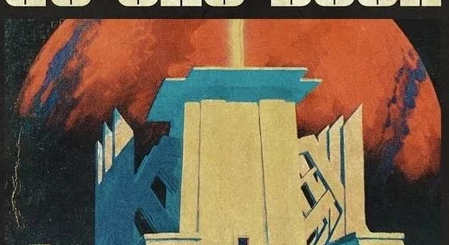Chances by The Strokes Lyrics Meaning – Unraveling the Emotional Tapestry of Hope and Desolation
Lyrics
I waited on ya, but now I don’t
You didn’t see it, I didn’t see it
I didn’t see it, but now, I do
I play your game, I play your game
Now
I play your game, I play your game
I take my chances alone
Get on your horse and be gone
I will not wait up for you anymore
So you can ask me if somethin’ is wrong
Will you go?
I don’t know anymore
When the night isn’t ready for you
It’s a fleeting unorthodox view
They invited a stewardess too
Now they want you to see it
Here’s to days he decides he’s got time
And he claims that it’s not a surprise
When he finds out the truth’s on his side
I take my chances alone
Get on your horse and be gone
I will not wait up for you anymore
So you can ask me if something is wrong
Will you go?
I don’t know anymore
I don’t believe anyone
As they crawl out of my way
Waiting for the night
Leaving night by night
You can see me travel
We could be in trouble every night
Why haven’t you arrived?
The Strokes have a reputation for crafting songs that blend the apathetic nonchalance of garage rock with a deeper, raw emotional undercurrent. ‘Chances,’ a track from their fifth studio album ‘Comedown Machine,’ is no exception. It showcases the band delving into themes of longing, disillusionment, and the existential roulette of holding on and letting go.
Like an elusive mirage fading in the emotional desert that relationships can become, ‘Chances’ speaks to the heart of anyone who’s waited for love, only to find themselves clinging to shadows in the end. The nuanced lyricism paints a vignette of a person coming to terms with the hard truths of a love unrequited or spent.
An Elegy to the Wait: Patience as a Double-Edged Sword
The opening lines of ‘Chances’ are a fateful embrace of reality after a period of hopeful anticipation. ‘I waited for ya, I waited on ya’ suggests a period of holding out for someone, an expectant pause filled with romantic potential. The repetition emphasizes the durational aspect of waiting, the enduring commitment to a promise, perhaps, of return or fulfillment.
But the words ‘but now I don’t’ act like a sleeper wave, breaking the cycle of patience and ushering in a moment of epiphany. It is here that the speaker recognizes an essential shift, a conscious acknowledgment that waiting has become fruitless, while maintaining the sting of being unseen – overlooked in their devotion and unseen in their realization until now.
The Gamble of Engagement: When Love Feels Like a Rigged Bet
The phrase ‘I play your game’ initially suggests complicity in a relationship where the rules may be dictated by the other. It’s the game of give-and-take, of emotional investment and vulnerability. However, this acquiescence is fleeting, marked by a subsequent withdrawal: the will to break free from the one-sidedness and reclaim a sense of autonomy over one’s emotional state.
In ‘I take my chances alone,’ there’s a poignant decision to step away from what feels like a losing battle. The line reverberates with the courage to face uncertainty and echoes the choice of solitude over the insubstantial comfort of a love that does not reciprocate.
Are Those On Horseback Ever Truly Gone? The Imagery of Departure
‘Get on your horse and be gone’ conjures a stark visual of departure, with equestrian imagery that feels both archaic and cinematic. There’s a sense of finality to it, an invitation to exit the narrative that the speaker has been a part of. Visions of riders disappearing into the horizon symbolize a break from the past and the characters that populated it.
This line not only speaks of physical distance but also hints at an emotional one. It suggests a willful surrender to the fact that some people, like mirages or riders in the distance, were never truly within one’s grasp to begin with. The speaker is both announcing and accepting this separation, stripping away their own denial.
A Tapestry of Doubt: The Lines You Can’t Forget
Amongst the most resonant lines, ‘I don’t believe anyone / as they crawl out of my way,’ encapsulates a pervasive disillusionment. It portrays a loss of faith not only in the subject of the waiting but also in a wider circle – the anonymity of the ‘anyone.’ There’s a suggestion that the speaker’s sense of disappointment has bled out to taint their view of others around them.
This line reflects the way in which personal heartaches can filter our perceptions, leading to a more defensive and cynical stance. It’s indicative of the scars left by experiences that prompt us to question genuineness, with everyone now perceived as a potential harbinger of disappointment, moving ‘out of my way’ in self-centered desultory motions.
The Veiled Consolation of the Night: Discovering Hidden Meanings
‘Waiting for the night’ and ‘Leaving night by night’ are absolute, almost cinematic phrases that convey a transitory state. The night here can be seen as a surrogate for comfort, a veil behind which one can escape the glaring realities of disappointment. It’s not the waiting for someone that beckons, but the night itself and its obscure consolation.
As the song draws to a close, the lyrics impart a sense of cyclic struggle with the notion ‘You can see me travel / We could be in trouble every night.’ Herein lies the crux of the song’s central tension: the pull between the desire for connection and the drive towards self-preservation. Despite the recognition of potential turmoil in every attempt at closeness, the speaker admits to an indefatigable spirit, traveling night by night, perhaps in search of something more steadfast or perhaps as a mere witness to their own transformative journey.








